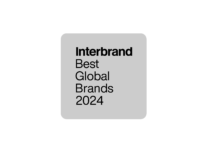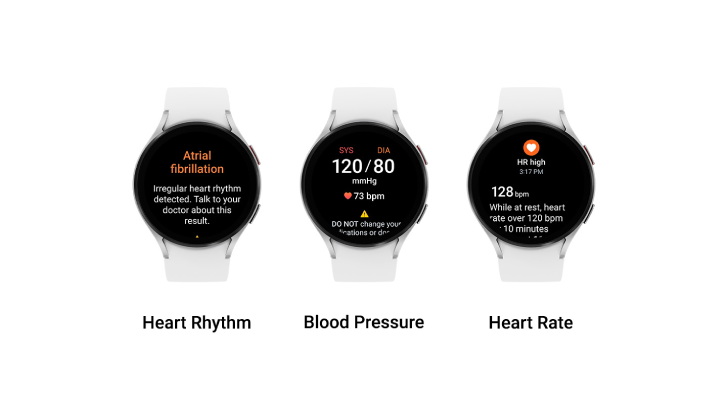- Cisco is changing how it operates its business, engages with suppliers, and helps customers and communities.
- The strategy focuses on the transition to clean energy, evolving the business to circular, and investing in resilient ecosystems.
- Cisco is already making strides with technology solutions that enable energy efficiency and circular economy.
25 Sep 2023 – Cisco, a global leader in technology and networking solutions, has announced the launch of “The Plan for Possible,” an ambitious and comprehensive environmental sustainability strategy that aims to build a regenerative future.
This year is on track to being the hottest year on record. There is a critical need to limit the temperature rise to no more than 1.5C to avoid catastrophic changes to the climate, and we are currently at 1.1C.
The world needs a sustainable future: one in which we can phase out our reliance on fossil fuels, address a century’s worth of pollution, provide economic opportunity to communities around the world, and align our activities with the physical boundaries of our Earth. The progress we make in this decade will be critical for future generations.
Acknowledging these pressing issues, Cisco is going beyond the “doing no harm” approach and building a holistic strategy to environmental sustainability. The “plan for possible” includes how the company operates its business, how it engages with suppliers, and how it helps customers and communities reduce their environmental impacts and adapt to a changing world.
“The world is connected, but we’re suffering from new forms of disconnection: from each other and our health, and from the health of the planet. Fortunately, technology can help us rethink operating and business models in ways that are digital and low carbon, but also improve individual wellbeing and create opportunities for communities” said Mary de Wysocki, Chief Sustainability Officer at Cisco. “With Cisco technology, we are helping power the world with affordable clean energy through digitizing smart grids and smart buildings, we are designing out waste by re-building products from used ones, and we are using the Internet of Things (IoT) to protect the world’s biodiversity.”
Priority 1: Transition to clean energy
To power the world with renewables, the grid requires updated digital infrastructure to connect diverse, decentralized sources of clean energy. But even as the world electrifies, there is a need to simultaneously reduce the amount of energy used by a connected economy. As a part of this priority, Cisco has set a goal to reach Net Zero across its value chain by 2040, which includes both its suppliers and our customers’ use of energy.
The company is tackling this with leading energy efficiency innovation, connecting clean energy and digitizing the grid and collaborating with customers, partners, and suppliers to accelerate the energy transition. With connectivity at the heart of digitalization, Cisco is in a unique position to equip businesses with technology solutions that help them achieve their sustainability goals. This includes the Silicon One chip, Cisco’s networking device for AI processing which reduces energy consumption while increasing bandwidth, and Universal Power Over Ethernet (PoE) to optimize energy use for smart buildings. Cisco also is helping its supply chain set GHG reduction targets. *
Priority 2: Evolve the business to circular
Cisco aims to transform its business to extend the useful life of its products and provide ongoing services. It aims to do so by adopting and scaling its business models to extend the product value and reduce environmental impacts, investing in technology incubation to be at pace with environmental science and championing a digital, nature-positive value chain.
The company is on track to achieving its goal of incorporating circular design principles into 100 percent of new products and packaging by 2025. Also, it launched several programs that enable circularity in its value chain:
- The Cisco Takeback and Reuse Program, which lets customers return hardware that has reached end-of-use, at no cost.
- Green Pay, a circular IT payment solution, that eliminates upfront hardware acquisition costs, offers predictable payments for 5 years, and an incentive of 5 percent. As part of this program, Cisco recovers products free of charge so these can be reused or recycled.
- Remanufacturing devices through Cisco Refresh to give them a new life for our business and planet.
Priority 3: Invest in resilient ecosystems
Recognizing the importance of resilient ecosystems and investing in regenerative solutions, Cisco sets its third priority on enabling communities to adapt to climate realities, cultivating talent for the regenerative economy, and deploying technology to protect and restore ecosystems.
In 2021, Cisco Foundation committed $100 million investment over ten years in climate solutions that already draw down the carbon in the atmosphere and help regenerate depleted ecosystems.
All of Cisco’s strategic priorities are underpinned by strong governance, embedding sustainability into its operations with the intent to maintain alignment with scientific advancements.
“Sustainability has become a top priority on the Malaysian government’s agenda, as it incorporates initiatives aligned with the United Nations Sustainable Development Goals in its national development frameworks including its 12th Malaysian Plan (12MP) to achieve them by 2030. As organizations in Malaysia accelerate their digital transformation journey, investments in technology offer them an opportunity to make a transition that is both digital and sustainable. As a trusted technology partner to businesses in Malaysia, we are committed to innovating with our customers’ sustainability goals in mind, and helping businesses make choices with an eye toward a more sustainable future,” said Hana Raja, Managing Director, Malaysia, Cisco.
* Cisco has the goal that 80% of Cisco component, manufacturing, and logistics suppliers by spend have a public, absolute GHG emissions reduction target by FY25. We are at 78% as of FY22.



![[Video] Galaxy Tab S10 Ultra: Faster and More Intelligent Than Ever Before](https://stuffmotion.com/wp-content/uploads/2024/10/Video-Galaxy-Tab-S10-Ultra_-Faster-and-More-Intelligent-Than-Ever-Before-Thumb-218x150.png)



































![[Video] Galaxy Tab S10 Ultra: Faster and More Intelligent Than Ever Before](https://stuffmotion.com/wp-content/uploads/2024/10/Video-Galaxy-Tab-S10-Ultra_-Faster-and-More-Intelligent-Than-Ever-Before-Thumb.png)



